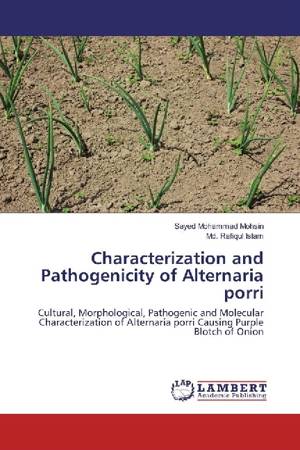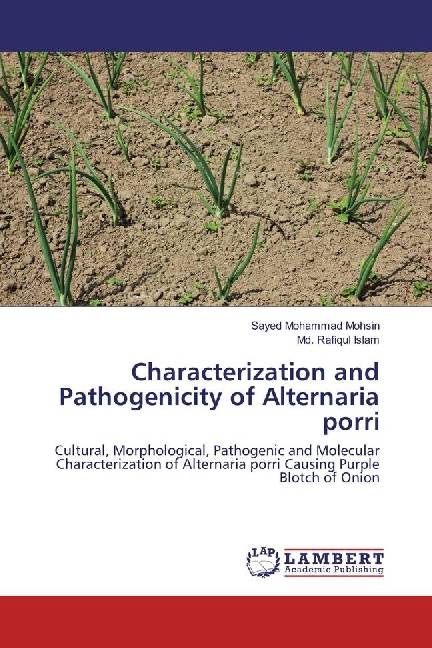
- Afhalen na 1 uur in een winkel met voorraad
- Gratis thuislevering in België vanaf € 30
- Ruim aanbod met 7 miljoen producten
- Afhalen na 1 uur in een winkel met voorraad
- Gratis thuislevering in België vanaf € 30
- Ruim aanbod met 7 miljoen producten
Zoeken
Characterization and Pathogenicity of Alternaria porri
Cultural, Morphological, Pathogenic and Molecular Characterization of Alternaria porri Causing Purple Blotch of Onion
Sayed Mohammad Mohsin, Md. Rafiqul Islam
Paperback | Engels
€ 49,45
+ 98 punten
Omschrijving
Purple blotch of onion (Alternaria porri) causes severe foliar damage to onion plants. Twenty seven (27) isolates of Alternaria porri were isolated from diseased samples collected from different onion growing regions of Bangladesh and studied their cultural, morphological, pathogenic and molecular characterization. Growth rate of isolates was between 2.43 to 3.95 mm/day with fast growth in isolate DSTR 02 and least in MMBH. Morphological variation in conidia production was between 7.720×103 to 47.02×103 per mm2 with sporulation time 3.33 to 11.00 days. Conidial septation ranged from 3.00 to 6.00 × 1.00 to 2.00 with size from 11.20 to 39.20 × 4.76 to 11.43 µm. Isolates shown variations in lesions size exhibited the pathogenic variation exist in the environment. In molecular study no band were found by using seven (7) RAPD primers in polymerase chain reaction (PCR) but band found by using ITS primer ITS1F and ITS4 from three isolates (DSSA, DSTR 02 and RBHR 02). The results demonstrated the existence of considerable variation in cultural, morphological, pathogenic and molecular characters of Alternaria porri isolates prevalent in Bangladesh environment.
Specificaties
Betrokkenen
- Auteur(s):
- Uitgeverij:
Inhoud
- Aantal bladzijden:
- 116
- Taal:
- Engels
Eigenschappen
- Productcode (EAN):
- 9783659969454
- Uitvoering:
- Paperback
- Afmetingen:
- 150 mm x 220 mm

Alleen bij Standaard Boekhandel
+ 98 punten op je klantenkaart van Standaard Boekhandel
Beoordelingen
We publiceren alleen reviews die voldoen aan de voorwaarden voor reviews. Bekijk onze voorwaarden voor reviews.











